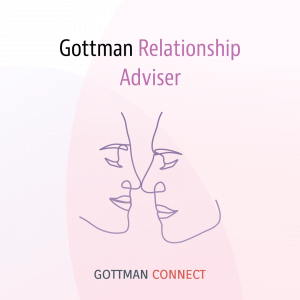Two Musicians on Different Notes
Michael and Jonathan sat uneasily on the couch with a safe distance between them for the first Oral History Interview. For me to see both of them on the computer screen, I asked them to move closer and they laughed nervously.
Both are gifted musicians who support their partner’s career path. They had spent months in a long-distance relationship due to different touring schedules. The recent pandemic meant spending more time together.
Maintaining the relationship had not been easy because they would have frequent disagreements that left both feeling misunderstood and attacked. Jonathan now avoided bringing up discussions about things like finances because it seemed to get out of control so quickly. His avoidance only served to make Michael feel more blamed and eager to defend his position.
They were gridlocked in recurring conflict.
Perfect Harmony
They reminded me of an old song by Stevie Wonder and Paul McCartney that opens with: “Ebony and ivory live together in perfect harmony / Side by side on my piano keyboard, oh Lord, why don’t we?” Apart from complaining that it was cheesy, they tolerated my sparse Baby Boomer musical knowledge. Jonathan smiled and said, “It’s a long time since we’ve experienced perfect harmony!” However, they did remember those times.
Both men spoke fondly of the early days when they were smitten with each other. Almost a decade later they were determined to work things out. The commitment was there but they needed to learn how to manage conflict.
Relevant Products Based on 50+ Years of Couples Research
The Gottman Method in Practice
I introduced them to the “Dreams within Conflict” exercise. This is my absolute favourite Gottman intervention. It works like magic in helping clients move from fighting to caring about each other.
Each of them played the role of “Listener” and “Speaker” to truly understand the dreams and the stories behind their different positions about money. Michael was a spender who did not want worries about money to hold them back from living the life they wanted. That meant having a place of their own instead of sharing with Jonathan’s parents. In contrast, Jonathan was much more conservative and fearful of debt. He did not want their choices to be restricted in the long term by taking on a large financial burden. Yet, he accepted they could not live with his parents indefinitely.
I did a lot of interrupting when it seemed that the conversation was going downhill, specifically, when the “Four Horsemen of the Apocalypse” made an appearance. It took considerable coaching to help both men find something they could validate about the other’s opinion.
The turning point came when they each shared feelings of vulnerability. Michael explained his distress about feeling judged as irresponsible because of his approach to money. It was upsetting for him to feel like he was once again the bad one in the family. Jonathan felt threatened by Michael becoming so excitable and physical in discussions.
It was helpful for them to share childhood stories of when Jonathan had to hide his own emotions to avoid provoking his elder sister who had angry physical outbursts. That was a light bulb moment. It suddenly made sense to Michael why Jonathan so often got overwhelmed. No wonder their arguments escalated! It wasn’t actually Michael’s fault, but it did give him a clue on how to communicate in a way that meant he would be heard.
At that moment, both of them reached out across the divide, apologised, and held each other’s hand. They looked like they were back on the same team working together to fix the problems.
Striking the Right Chord In and Out of Session
In follow-up sessions, both men complained about how much easier it was to do the right thing and speak respectfully in therapy. Of course, it is human nature to be on your best behaviour when we are being observed! But now they had a script to follow to discuss future disagreements. The challenge was to make the new skills second nature so Jonathan and Michael could use them in real-life settings.
In later sessions, I taught them how to follow the guidelines of “How to Process a Regrettable Incident.” We also worked through the homework of a “7-week guide for Creating Fondness and Admiration.” I explained that if they worked on building a stronger friendship and noticed each other’s good points it would make conflict easier and help them to be more willing to compromise.
It was not a quick fix. Gradually, they started to use the skills more regularly to talk about their disagreements and to listen compassionately to the other’s point of view. They were happy for me to write about their progress in this blog post. They hoped that it would encourage other gay couples to seek counselling for relationship difficulties.
Sign Up and Start Your Relationship Transformation
Subscribe to Gottman Love Notes and get the latest on relationships, therapy, and much more from the experts. Includes a free download and access to special pricing on Gottman products every month.
Are you currently looking for a Certified Gottman Couples Therapist to use research-based approaches to help your relationship? The Gottman Institute is seeking couples to participate in an international outcome study on Gottman Method Couples Therapy. Learn more here.










